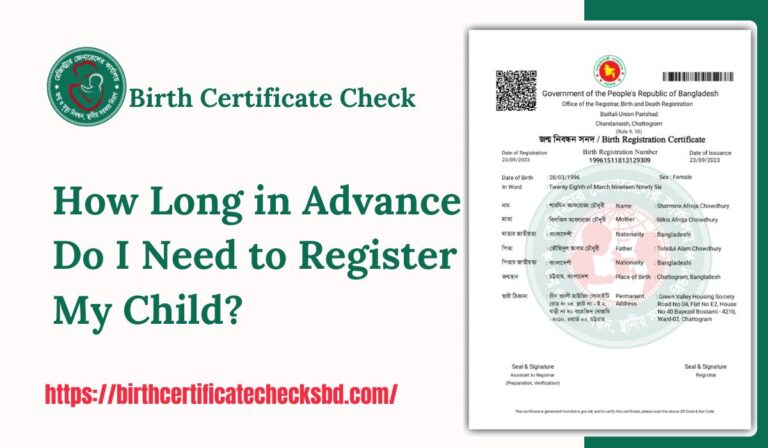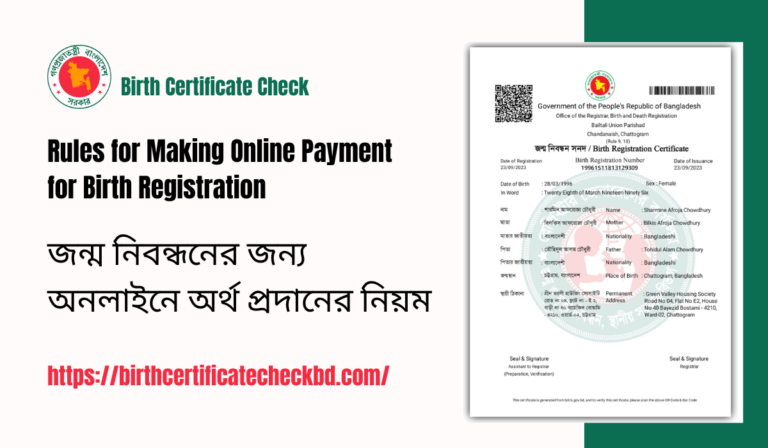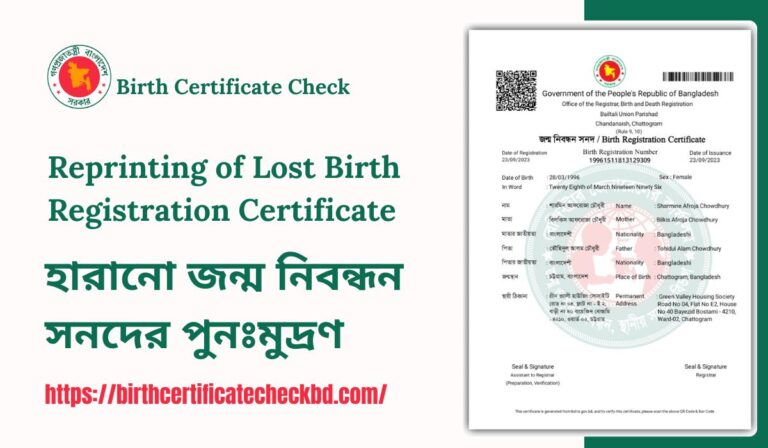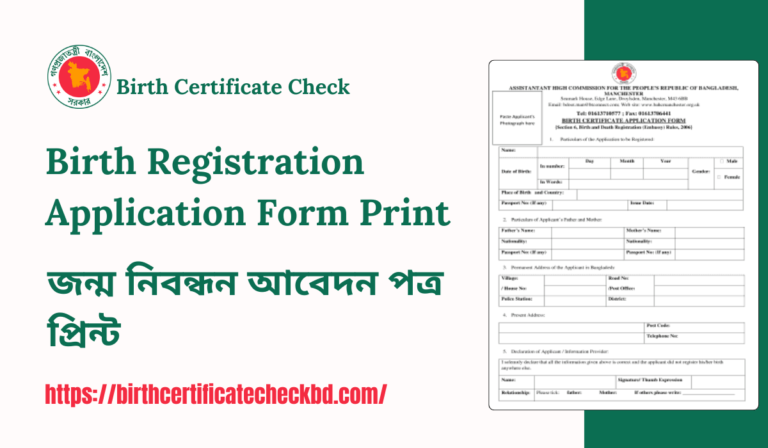What is The Process of Certificate Attestation?
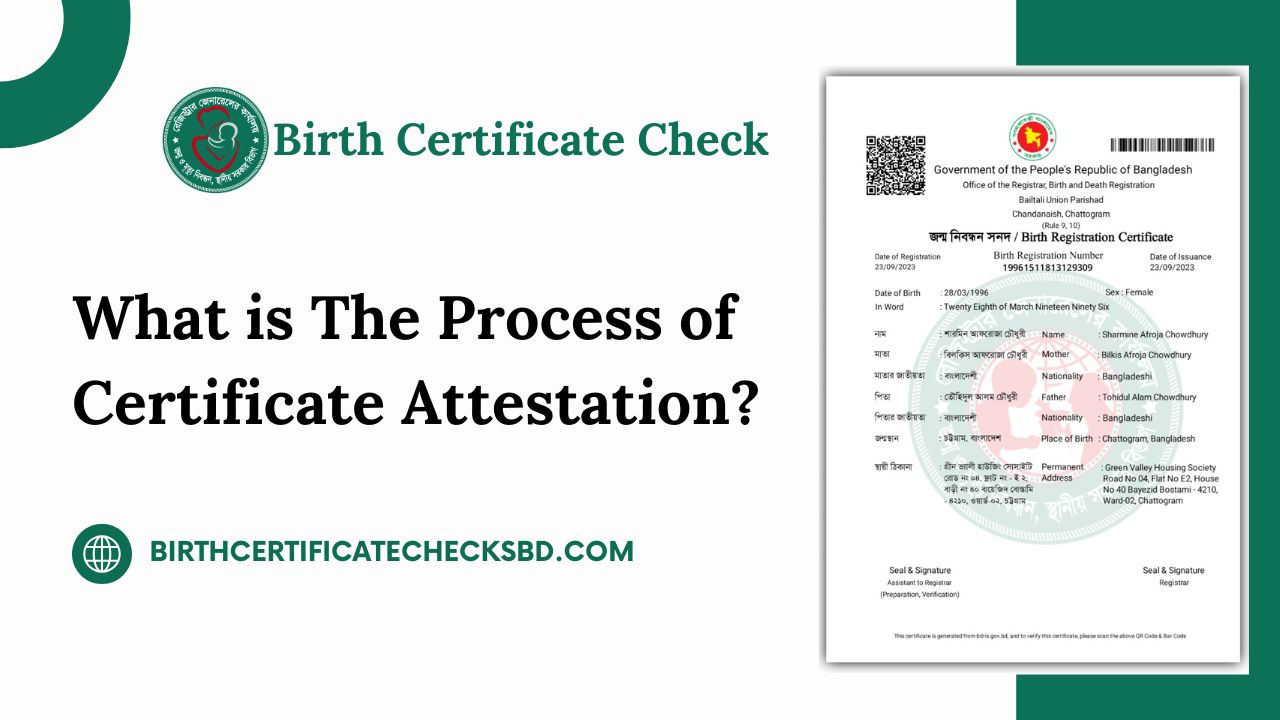
What is The Process of Certificate Attestation? When dealing with foreign immigration, employment, or education processes, one common requirement that many Bangladeshis encounter is certificate attestation. But what exactly is this process? Why is it necessary, and how does one go about it? This article will break down the entire certificate attestation process in Bangladesh, covering the essentials and providing a step-by-step guide to help you navigate this vital procedure with ease.
What is Certificate Attestation?
Certificate attestation refers to the official process of verifying the authenticity of a document by a competent authority. In simpler terms, it is a formal procedure through which your educational, professional, or personal documents are validated and authenticated for international use. These documents can range from academic certificates to marriage certificates or employment documents.
The attestation process typically involves placing a seal and signature from the relevant authority, which may be a government department, the embassy of the country where the document will be used, or a notary public.
Why is Certificate Attestation Important?
Attesting your certificates is essential when you are moving abroad for work, higher education, or immigration. Here’s why the process is crucial:
- Verification of Authenticity: Foreign authorities require assurance that your documents are genuine and not forged.
- International Recognition: Without attestation, your certificates may not be recognized or accepted by foreign institutions or employers.
- Legal Requirement: Countries often make attested documents a prerequisite for obtaining a visa, work permit, or for pursuing education abroad.
Steps Involved in the Certificate Attestation Process
The process of certificate attestation can be divided into several stages. Below is a simplified guide for Bangladeshis to understand and follow the necessary steps.
Step 1: Notary Attestation (If Required)
In some cases, particularly for personal documents such as affidavits, a notary public may need to attest the documents first. This is typically the initial step before submitting your certificates for further attestation by government authorities.
Step 2: Attestation by the Ministry of Foreign Affairs (MOFA)
Once your document is notarized (if necessary), the next step is to have it attested by the Ministry of Foreign Affairs (MOFA) of Bangladesh. MOFA’s role is to verify the authenticity of the documents for use abroad.
Here is a basic guide for attesting documents with MOFA:
- Submit your document along with a copy of your passport.
- Fill out the attestation application form.
- Pay the requisite attestation fee.
- Wait for the official attestation, which may take several working days.
Step 3: Attestation by the Respective Embassy
Once the MOFA has attested your documents, the next step is to approach the embassy or consulate of the country where the documents will be used. This step is often required for countries that need additional verification of the documents for immigration or employment purposes.
The steps to get embassy attestation are as follows:
- Visit the embassy of the country you are applying to.
- Submit the attested document(s) and fill out the required forms.
- Pay the embassy fee.
- Wait for the embassy to finalize the attestation.
Step 4: Final Verification (If Required)
Some countries may require additional verification or steps before considering your documents fully attested. This could include verification by a professional body (for example, in the case of educational certificates) or the Ministry of Education for certain documents.
Types of Documents That Require Attestation
Different types of documents may require attestation, including:
- Educational Certificates: Degrees, diplomas, transcripts, and certificates.
- Personal Documents: Birth, marriage, and divorce certificates.
- Professional Documents: Employment certificates, experience letters, and salary slips.
- Commercial Documents: Power of attorney, company incorporation documents, and trade agreements.
Documents Required for Certificate Attestation
| Type of Document | Required Authority for Attestation | Approximate Processing Time |
|---|---|---|
| Educational Certificates | Ministry of Foreign Affairs, Respective Embassy | 7-14 working days |
| Personal Documents (Birth, Marriage) | Ministry of Foreign Affairs, Respective Embassy | 7-10 working days |
| Employment Documents | Ministry of Foreign Affairs, Employer/Embassy | 7-10 working days |
| Commercial Documents | Ministry of Foreign Affairs, Respective Embassy | 10-15 working days |
Costs Involved in Certificate Attestation
The costs associated with certificate attestation can vary depending on several factors, including the type of document and the destination country. It is important to verify the fee structure with each attestation authority. Typically, MOFA charges a fixed fee, while embassy fees may vary.
Common Challenges in Certificate Attestation
- Lengthy Processing Time: Depending on the embassy and the type of document, the attestation process may take longer than expected.
- Confusion Over Document Requirements: Different countries may have different document requirements for attestation, making it challenging to follow the correct process.
- Misplaced or Invalid Documents: Ensure all your documents are genuine and error-free to avoid delays.
Conclusion
Certificate attestation is an essential process for individuals wishing to live, work, or study abroad. Whether you need to validate your educational certificates, professional experience, or personal documents, understanding the process and requirements is key to ensuring a smooth experience. By following the steps outlined above, you can ensure that your documents are ready for international use, allowing you to confidently proceed with your plans abroad.

